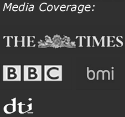When you start a business you can choose the type of structure that best suits the activity. There are good points for each and by thinking about the kind of business you are running, you’ll be able to make the best choice.
There are also two other types of business structures; Partnerships and Limited Liability Partnerships, but for most people these will not be their first choice. However you can read more about these here: www.companypartners.com/blog/2016/01/05/what-type-of-business-partnership-should-i-have/
Sole Trader
Pros:
1. Easiest to set up, simply let the HMRC (Inland Revenue) know that you are going to be self-employed as a Sole Trader.
2. The least paperwork; no annual accounts, or filing with Companies House.
3. All profits are yours to keep as income.
Cons:
1. You will need to do a tax self-assessment each year and pay your tax and National Insurance.
2. There are tax benefits that you may miss out on if your turnover becomes large, compared to being a company.
3. The biggest drawback for small businesses is that as a Sole Trader you are liable for everything. So if a customer decides to sue for compensation for instance, it will be you personally that has to pay.
Limited Company
Pros:
1. Being seen as a Company can have a better business image to customers.
2. The company is a separate entity from yourself and you are not liable for its debts, so it reduces your personal risk. This is a very important difference.
3. As revenue grows there may be tax benefits as compared to being a Sole Trader.
4. It is easier to draw expenses and costs for running the company.
Cons:
1. It is harder to initially set up; you have to register a company name and various documents with Companies House. However there are many places on-line that will do all that for you at very little cost, so don’t let that put you off.
2. The biggest drawback is that each year you will need to send annual accounts and make an annual return to Companies House and the Inland Revenue. For that you most likely will need an accountant and that will be an extra expense.
In both cases if your revenue is more than the VAT threshold (currently £85k in the UK), you must register for VAT and charge your customers VAT, which is paid to the Inland Revenue. It does have the benefit that you can claim back VAT on goods that you have bought for the business.



